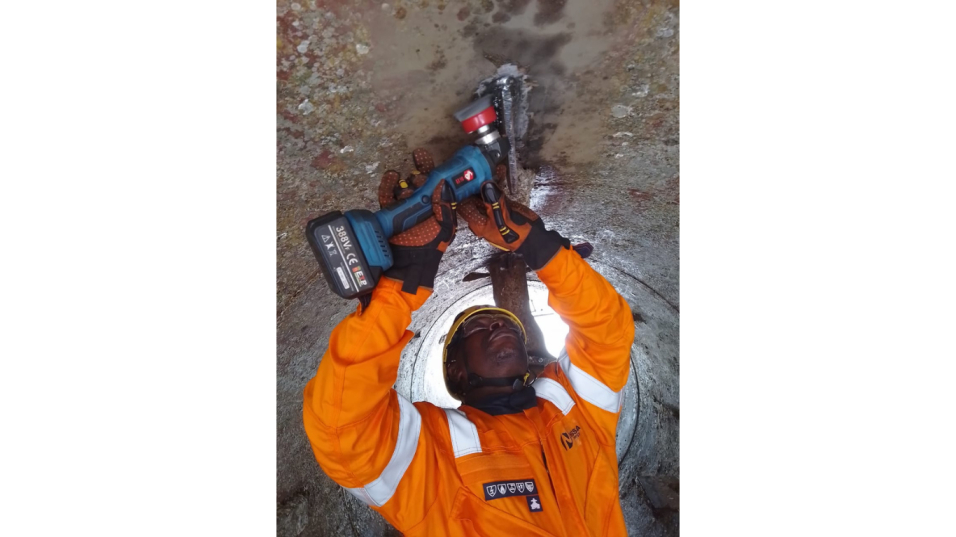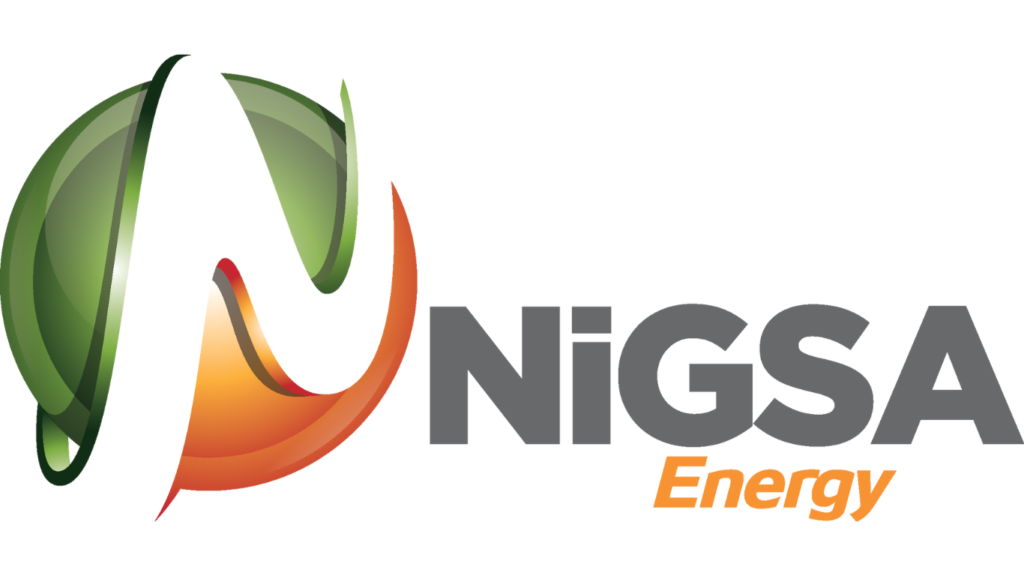Introduction
According to a report by the International Energy Agency (IEA), in 2024, out of the $110 billion USD invested across Africa, almost 65% was allocated to fossil fuel-based power, with the remainder directed toward renewable energy technologies. This data highlights the challenges Africa faces in meeting the Sustainable Development Goals (SDGs). While renewable energy investments in Africa are rising, they currently account for only 2% of global renewable energy investments and 1.2% of Africa’s GDP.
As a result, a significant portion of Africa’s growing power generation needs is still met by fossil fuels. This is particularly critical given that 600 million people lack access to electricity, and approximately 1 billion people rely on traditional energy sources for cooking.
Africa is home to 54 countries, but only seven—Egypt, Libya, Algeria, Nigeria, Tanzania, Angola, and the Republic of Congo—possess significant crude oil and natural gas reserves. Among these, Nigeria stands out as the largest oil producer in Africa. In 2019, Nigeria’s petroleum sector contributed 5.6% to the country’s GDP, rising slightly from 5.5% in 2023. With consistent production and its strategic location, Nigeria is poised to become Africa’s largest oil-producing and exporting country by 2025.
The Need for Safer, Smarter Infrastructure Across Africa
The African petroleum sector faces numerous challenges, including pipeline vandalism, oil theft, spills, pollution, infrastructure gaps, political instability, and militant attacks on production facilities. Addressing these issues is essential to maintaining the sector’s growth trajectory.
Solutions lie in increasing production and refining capacity, improving processes, investing in infrastructure, fostering partnerships, and embracing technological advancements. This article explores how African businesses can overcome these obstacles and build a more resilient energy sector.
The Significance of Asset Integrity Management in the African Oil and Gas Sector
One critical area for improvement in Africa’s petroleum sector is Asset Integrity Management (AIM). AIM ensures that critical infrastructure—such as pipelines, refineries, and offshore facilities—remains reliable, safe, and efficient throughout its lifecycle.

The petroleum sector relies on a vast network of equipment designed to extract, process, and transport crude oil. However, much of this infrastructure was constructed decades ago and is nearing or has already exceeded its design lifespan. Deteriorating assets pose significant risks, including oil leaks, fires, and explosions caused by corrosion and material degradation. These risks threaten the environment, human lives, and the economy.
By prioritising AIM, Africa can meet its energy needs, reduce reliance on imports, and achieve sustainability goals by 2030.
The Strategic Advantage of AIM Collaborations Between NOCs and IOCs Across Africa
Most oil-rich African countries have National Oil Companies (NOCs) that provide local resources such as land, manpower, and legal support. International Oil Companies (IOCs), on the other hand, bring infrastructure, investment, and technological expertise. Partnerships between NOCs and IOCs are crucial, as 60%-80% of Africa’s oil and gas reserves are under the control of NOCs.
Here are some notable examples of these collaborations:
- Libya’s National Oil Corporation is partnering with IOCs like Repsol, bp, TotalEnergies, and ConocoPhillips to enhance oil production to 2 million barrels per day (bpd).
- Algeria’s Sonatrach aims to raise hydrocarbon output by 2.5 percent this year and is actively seeking international collaborations with IOCs like ExxonMobil and Chevron to accelerate exploration efforts.
- Petrosen of Senegal and SMH of Mauritania are working with bp and Kosmos Energy to advance the Greater Tortue Ahmeyim LNG project.
- ENH, the NOC of Mozambique, is partnering with international operators to develop multiple LNG initiatives.
- Sonangol, Angola’s NOC, is joining hands with its New Gas Consortium partners to boost LNG production capacity.
- The Uganda National Oil Company (UNOC) is leading exploration efforts in underexplored regions within the country.
- Namibia, NAMCOR plans to begin the first oil production from the Orange Basin by 2029 by joining hands with IOCs.
- The South Africa National Petroleum Company (SANPC) aspires to boost investment in exploration, natural gas monetisation, and the advancement of infrastructure.
These partnerships demonstrate the importance of collaboration in addressing Africa’s energy challenges.
Success Stories of AIM Partnerships: AIM in Action Across Africa
Many petroleum companies have successfully implemented AI-based predictive maintenance solutions, starting from offshore drilling platforms to onshore processing factories. For example:
- Chevron: By adopting AI-driven predictive maintenance, Chevron has reduced downtime, improved equipment reliability, and achieved significant cost savings.
- Shell: Shell has used predictive analytics to anticipate equipment breakdowns, leading to proactive maintenance, improved safety, and reduced repair costs.
- BP: BP has transformed its maintenance programs with AI, enabling proactive identification of equipment failures and optimising workflows.
- ExxonMobil: ExxonMobil has enhanced asset performance and reduced operational risks through real-time data monitoring and predictive analytics.
- TotalEnergies: TotalEnergies has integrated machine learning, IoT, and predictive analytics to improve asset management and operational efficiency.
These success stories highlight the transformative potential of AIM when combined with cutting-edge technology.
From Cutting-Edge Technology to Compliance: How AIM Enhances Operations
Traditional maintenance methods, such as reactive or preventive maintenance, often result in unexpected breakdowns, downtime, and high costs. However, advancements in AI and machine learning have revolutionised AIM through predictive maintenance.
Predictive maintenance uses data analytics and algorithms to monitor real-time parameters like temperature, pressure, and vibration. By identifying patterns and abnormalities, it predicts equipment failures in advance, allowing companies to address issues proactively. This approach minimises downtime, reduces costs, and maximises asset performance.
Nigeria’s Success Story: Fuelling Africa’s Energy Future
Nigeria’s AIM sector has attracted significant investment and technological support from IOCs such as ExxonMobil, Shell, TotalEnergies, Chevron, and ENI. Among the many AIM companies in Nigeria, NiGSA Energy Services Limited stands out for its innovative solutions and commitment to excellence.
NiGSA Energy: Championing Local Content, Innovation, and Sustainability in AIM Solutions
NiGSA Energy Services Limited is making an impact and differentiating itself in the AIM sector of the Nigerian energy sector by actively championing local content development and adopting innovative, eco-friendly solutions. The company’s business model is built around promoting and developing indigenous capabilities, which aligns with the Nigerian Oil and Gas Industry Content Development (NOGICD) Act of 2010. Instead of relying solely on foreign expertise, the company focuses on investing in training Nigerian professionals in specialised fields like advanced Non-Destructive Testing (NDT) and remote inspection technologies. This directly addresses the skills gap in the local workforce and builds a sustainable talent pool for the industry. Additionally, NiGSA prioritises the use of local resources, which contributes to the Nigerian economy and reduces capital flight. This approach strengthens the local supply chain and fosters the growth of other indigenous businesses. NiGSA’s full compliance with local regulatory bodies like the Nigerian Content Development and Monitoring Board (NCDMB) and NiPeX, along with its international accreditations from ABS, BV, RINA and DNV, demonstrates a commitment to both national and global standards, building trust and positioning the company as a credible partner that actively supports the country’s development goals.

Beyond its focus on local content, the company’s approach goes beyond traditional asset integrity management by integrating modern technology and an emphasis on environmental sustainability. NiGSA utilises advanced inspection methods such as Automated Ultrasonic Testing (AUT) and Long Range Ultrasonic Testing (LRUT). These technologies enhance efficiency, improve data collection, and provide more accurate assessments of critical infrastructure, thereby improving safety and operational reliability. Furthermore, the company has a stated mission to deliver pioneering and eco-friendly solutions. This focus on environmental sustainability is increasingly critical in the energy sector, and NiGSA’s commitment to it positions them as a forward-thinking company prepared for the industry’s evolving landscape. The company’s core values, including Innovation and Continuous Improvement, drive its research and development efforts, ensuring they stay ahead of industry trends and consistently provide cutting-edge solutions to their clients.
NiGSA’s values—Innovation, Quality, Integrity, Teamwork and Continuous Improvement—are at the core of its operations. The company has been recognised with the following awards:
- Most Innovative Oil & Gas Servicing Company, Nigeria 2025
- Best Asset Integrity Management Company, Nigeria 2025
- Most Innovative Asset Management Solutions Provider, Nigeria 2025
Building the Future of African Energy Infrastructure
The integration of AI, IoT, and predictive analytics is transforming AIM in the oil and gas sector. These technologies enable real-time monitoring, proactive maintenance, and enhanced asset performance. The emergence of digital twins and cloud computing platforms further enhances the scalability and effectiveness of AIM solutions.
As Africa faces critical energy challenges, companies like NiGSA Energy Services Limited are leading the way with innovative, sustainable, and customer-focused solutions. By embracing advanced technologies and fostering strategic partnerships, Africa’s energy sector can achieve a safer, smarter, and more sustainable future.
The next few decades are pivotal for Africa’s energy sector. By investing in Asset Integrity Management (AIM), fostering collaboration between NOCs and IOCs, and embracing cutting-edge technologies, the continent can address its energy challenges and build resilient infrastructure. Companies like NiGSA Energy exemplify the potential for innovation and excellence in driving this transformation. Other African nations and companies can take measures to replicate this success and secure a sustainable energy future for the continent.































